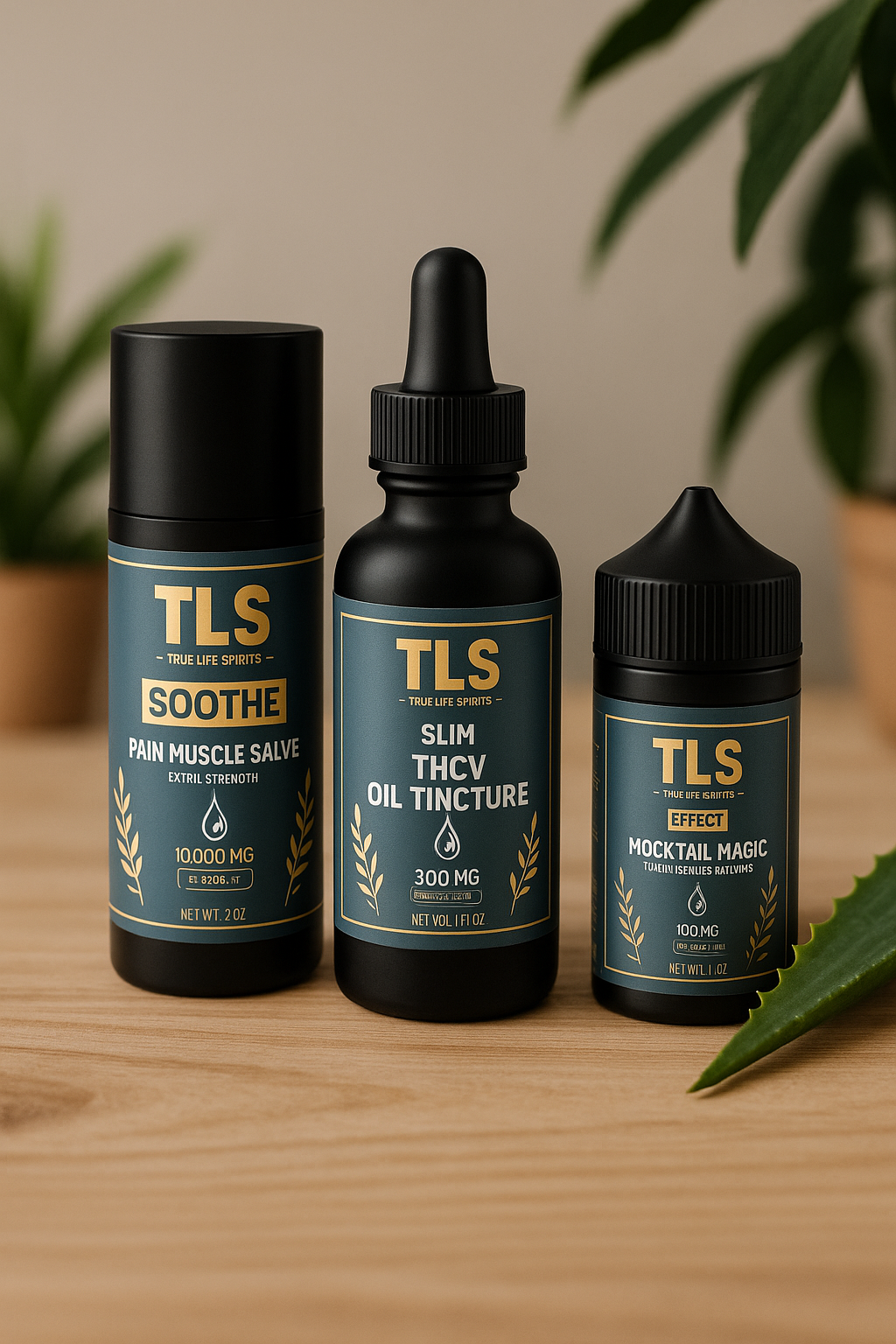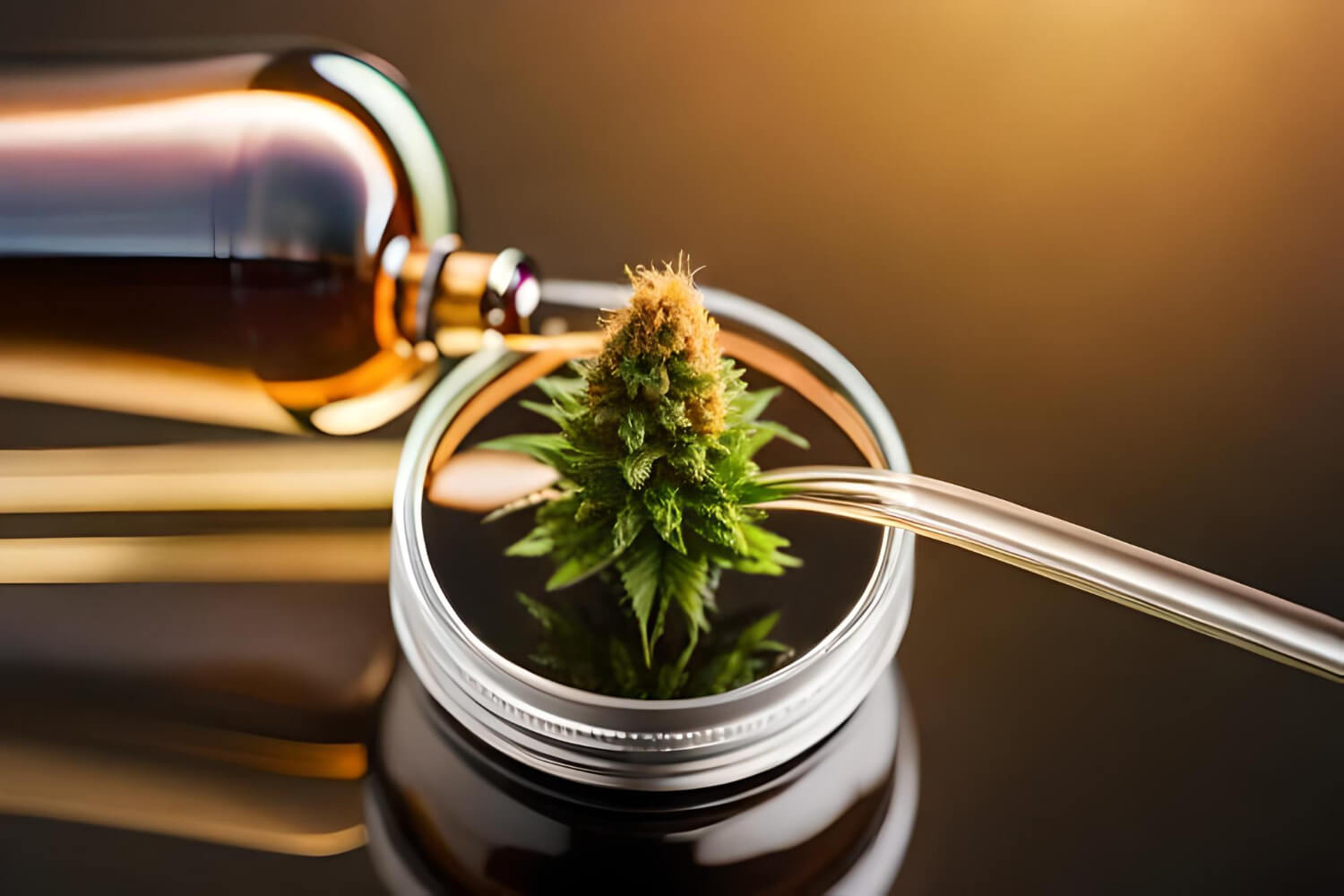In the ever-evolving world of wellness and natural remedies, a lesser-known cannabinoid is making waves for its potential to revolutionize weight management. Enter Tetrahydrocannabivarin, or THCv—a compound found in certain cannabis strains that's been dubbed "diet weed" for its appetite-suppressing properties. Unlike its infamous cousin THC, which often sparks the munchies, THCv appears to work in the opposite direction, offering a promising tool for those battling the bulge. Derived from cannabis sativa, THCv is non-psychoactive at low doses and has been studied for its effects on metabolism, insulin sensitivity, and energy expenditure. As obesity rates climb globally—affecting over 1 billion people according to the World Health Organization—THCv tinctures, which deliver the compound sublingually for quick absorption, are emerging as an intriguing option. But what makes this cannabinoid stand out? Let's dive into the facts and figures that paint a compelling picture.
The Cannabinoid That Curbs Cravings: How THCv Works Its Magic
At the heart of THCv's appeal is its interaction with the body's endocannabinoid system (ECS), a network of receptors that regulates appetite, mood, and metabolism. THCv acts as a neutral antagonist at CB1 receptors, blocking the signals that trigger hunger without causing the high associated with THC. This mechanism contrasts sharply with THC, which activates those same receptors to increase food intake. Animal studies provide foundational evidence: In a 2013 research published in Nutrition & Diabetes, diet-induced obese mice treated with THCv at doses of 0.3 to 12.5 mg/kg showed no significant body weight reduction but experienced a 31.1% decrease in fat content compared to controls, alongside improved insulin sensitivity and reduced liver triglycerides. This suggests THCv enhances energy metabolism, turning stored fat into fuel. Another rodent study from 2009 demonstrated hypophagic effects—meaning reduced food consumption—at doses as low as 3 mg/kg, leading to increased satiety and transient boosts in energy expenditure. For humans, these findings translate to potential real-world benefits, especially when administered via tinctures, which allow precise dosing and rapid onset, typically within 15-30 minutes.
Groundbreaking Studies: THCv's Impact on Human Weight Loss
While animal data is promising, human clinical trials offer the most exciting insights. A landmark 2025 placebo-controlled study involving 44 obese adults examined THCv combined with CBD in mucoadhesive strips—a delivery method akin to tinctures for bioavailability. Participants received either 8 mg THCv/10 mg CBD (low dose), 16 mg/20 mg (high dose), or placebo daily for 90 days. The results were striking: The low-dose group lost an average of 2.6 kg (±1.5 kg, p=0.001), with the greatest individual loss at 11.1 kg. The high-dose group fared even better, shedding 4.1 kg (±2.44 kg, p=0.004), peaking at 13.95 kg, while the placebo group saw negligible change (-0.1 kg). Abdominal girth also shrank significantly—5.0 cm in the low-dose group (p<0.001) and 3.7 cm in the high-dose (p=0.011)—indicating targeted fat reduction around the midsection, a key risk factor for metabolic syndrome. This syndrome affects up to 2.5 billion overweight adults worldwide, and the study's author noted THCv's role in addressing it through appetite modulation. Another 2016 trial on 62 type 2 diabetes patients using 5 mg THCv twice daily for 13 weeks reported decreased fasting plasma glucose from 7.4 to 6.7 mmol/L (p<0.05) and improved β-cell function, hinting at broader metabolic perks that could support sustained weight loss.
Beyond Appetite Suppression: THCv's Metabolic Makeover
THCv's benefits extend far beyond curbing cravings; it appears to revamp the body's metabolic machinery. In the aforementioned 2025 study, systolic blood pressure dropped by 8.7 mmHg in the low-dose group (p=0.003) and 12.1 mmHg in the high-dose (p=0.065), compared to just 1.9 mmHg in placebo. Total cholesterol levels also improved, falling 9.1 mg/dL in low-dose and 10.4 mg/dL in high-dose users, versus a 3.8 mg/dL rise in controls. These changes underscore THCv's potential to combat obesity-related comorbidities like hypertension and dyslipidemia. Rodent research reinforces this: THCv upregulated energy metabolism, reducing fasting insulin and liver triglycerides in obese mice. Epidemiological data adds context—regular cannabis users often have lower BMIs, with one study finding a statistically significant association (p<0.001) in 57.4% of users. For tincture users, this means a holistic approach: A few drops under the tongue could not only help control portions but also enhance insulin response, making workouts more effective and daily energy levels soar.
Integrating THCv Tinctures into Your Daily Routine
Imagine starting your day with a tincture that quiets hunger pangs while boosting focus—THCv makes this possible. Available in oil-based formulations, these tinctures are easy to dose, starting at 5-10 mg daily to mimic study protocols. Unlike gummies or edibles, tinctures bypass digestion for faster effects, ideal for pre-meal use to promote satiety. Pairing with a balanced diet and exercise amplifies results; for instance, the 2025 trial's participants achieved weight loss without mandated lifestyle changes, suggesting THCv as a supportive aid. Anecdotal reports from users echo science—many describe reduced snacking and sustained energy, aligning with a 2024 self-reported trial where THCv improved motivation and appetite control. However, consistency is key: Studies show benefits accrue over weeks, with peak effects at 90 days. Sourcing from reputable brands ensures purity, as THCv is rare and often extracted from specific strains like Durban Poison.
Navigating Risks and Realities: Is THCv Right for You?
No remedy is without caveats, and THCv is no exception. While non-psychoactive at therapeutic doses, higher amounts (above 10 mg) may induce mild euphoria. Side effects in trials were minimal—mostly transient like dry mouth—but long-term data is limited. It's crucial to consult healthcare providers, especially if diabetic, as THCv influences glucose levels. Legal status varies; in the U.S., hemp-derived THCv (under 0.3% THC) is federally legal, but state laws differ. Despite promising figures—like the 13.95 kg max loss in one study—experts caution that THCv isn't a magic bullet but a complement to healthy habits. Ongoing research, including small-scale trials showing reduced hunger on numerical rating scales, builds a cautious optimism.
The Horizon of Hope: THCv's Future in Weight Wellness
As obesity epidemics persist, THCv tinctures represent a frontier in natural weight loss solutions. With human trials demonstrating up to 4.1 kg average loss in 90 days and metabolic improvements, the cannabinoid challenges traditional diets. Future studies may explore higher doses or combinations, potentially positioning THCv alongside GLP-1 agonists like semaglutide, but without injections. For now, it's a beacon for those seeking sustainable change—harnessing nature's pharmacy to redefine "diet" one drop at a time.
Reference:
1. Abioye, A., Ayodele, O., Marinkovic, A., Patidar, R., Akinwekomi, A., & Sanyaolu, A. (2020). Δ9-Tetrahydrocannabivarin (THCV): A commentary on potential therapeutic benefit for the management of obesity and diabetes. Journal of Cannabis Research, 2, Article 6. https://doi.org/10.1186/s42238-020-0016-7
2. Alshaarawy, O., Sidney, S., Auer, R., Green, D., Soliman, S., Goff, D. C., Jr., & Anthony, J. C. (2019). Are cannabis users less likely to gain weight? Results from a national 3-year prospective study. International Journal of Epidemiology, 48(5), 1695-1700. https://doi.org/10.1093/ije/dyz044
3. Jadoon, K. A., Ratcliffe, S. H., Barrett, D. A., Thomas, E. L., Stott, C., Bell, J. D., O’Sullivan, S. E., & Tan, G. D. (2016). Efficacy and safety of cannabidiol and tetrahydrocannabivarin on glycemic and lipid parameters in patients with type 2 diabetes: A randomized, double-blind, placebo-controlled, parallel group pilot study. Diabetes Care, 39(10), 1777–1786. https://doi.org/10.2337/dc16-0650





Leave a comment
This site is protected by hCaptcha and the hCaptcha Privacy Policy and Terms of Service apply.